Interview with the founder of Ivy
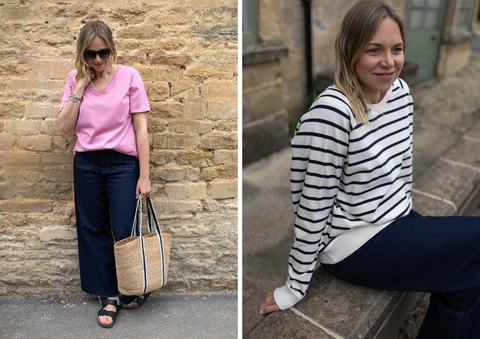
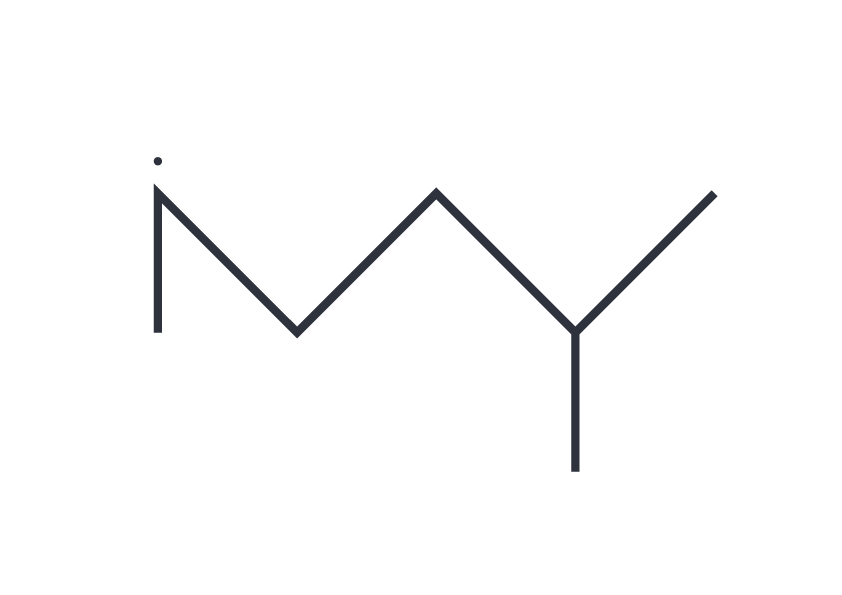
Thank you for wanting to be part our exclusive network. What were your reasons for joining us and investing in the Ethical Brand Directory / Academy and community?
As an independent and ethical brand in a sea of mass produced fast fashion brands, we recognise the benefits in joining this like minded community to help spread the word on responsible purchasing.
Can you give me a brief overview of your brand and the type of products you sell?
We offer a range of ethically sourced organic cotton t-shirts, sweatshirts and dresses to offer women 100% comfort. Responsibly made in small batches in Portugal, our sustainable essentials wash well and are designed for longevity. We hope to make getting dressed each day simple and easy for our wearers and ensuring that they feel confident everyday. Our designs are timeless and simple to ensure classic and enduring style.
1) Our t-shirt wash amazingly well and last. There are so many poorly made t’s on the market that don’t last much longer than one wash and this has always been one of our most important criteria for our t’s.
2) Our t-shirts are kept simple without external branding or logos to make sure that they don’t date.
3) We only use organic cotton fabrics and focus on incredible fit and never scrimp on fabric to save money. We want women to feel confident and comfortable everyday.
What was your WHY? What inspired you to set up your business?
Simply put, I needed these t-shirts. Prior to founding Ivy, I had 50+ basic t-shirts and they were all dreadful. I was a new mum, living in casual and comfortable clothing and realised that none of the t’s were making me feel good or confident. They had shrunk, twisted or pilled after washing, were too short and clingy and had fussy, unnecessary details. I had been a buyer before becoming a mum so decided to create a range myself. 6 years on and we have now have thousands of loyal Ivy customers.
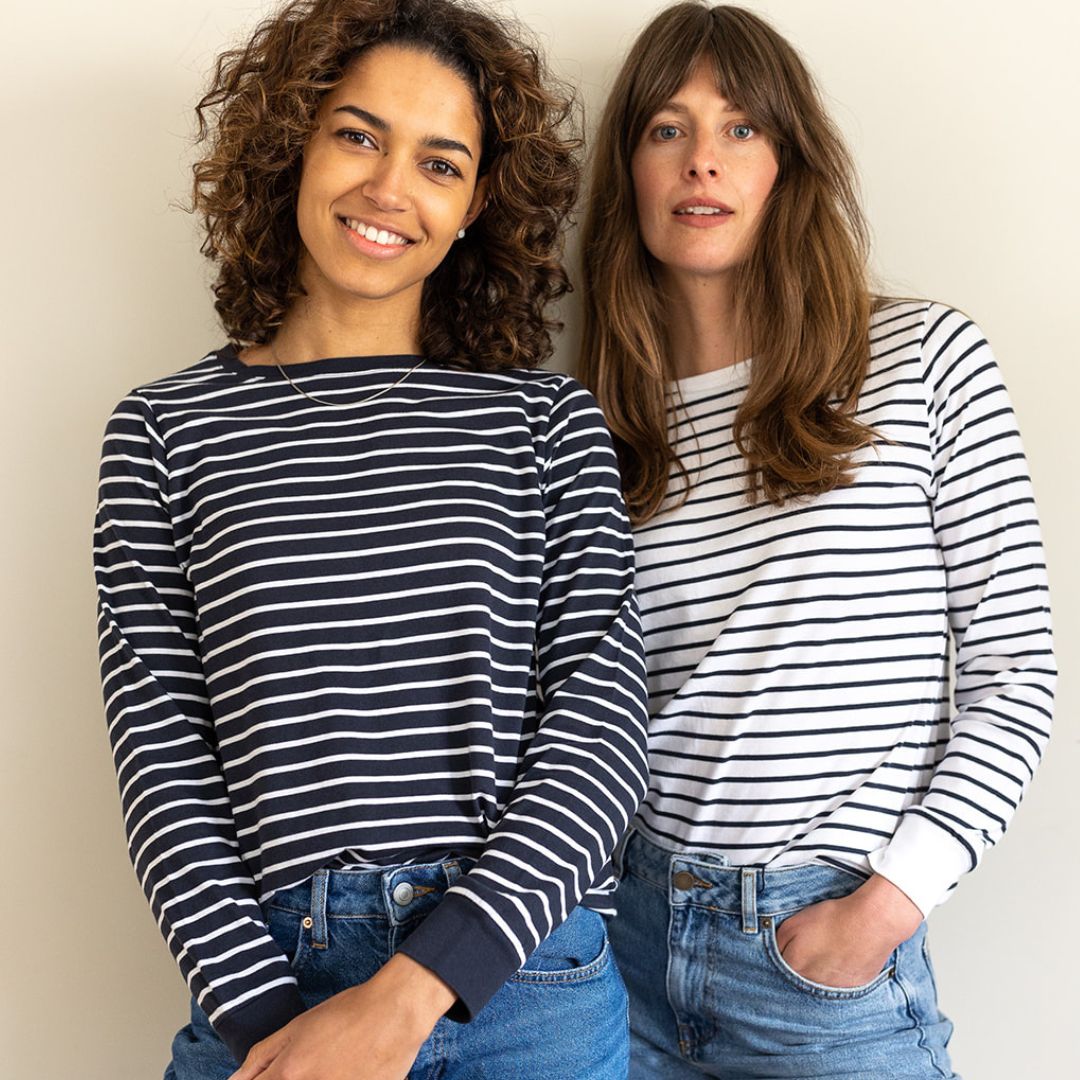
What challenges do independent brands like yourself face?
The main challenge will always be the mass producing competitors who can offer lower prices. We produce in small batches close to home in Portugal, only using the finest organic cotton fabrics. Our quality is second to none but it takes a lot of time to raise awareness and to spread awareness. Every day however, I receive comments to reassure me that more and more people are shopping mindfully and that once they try our t’s they soon realise that spending a little more is totally worth it.
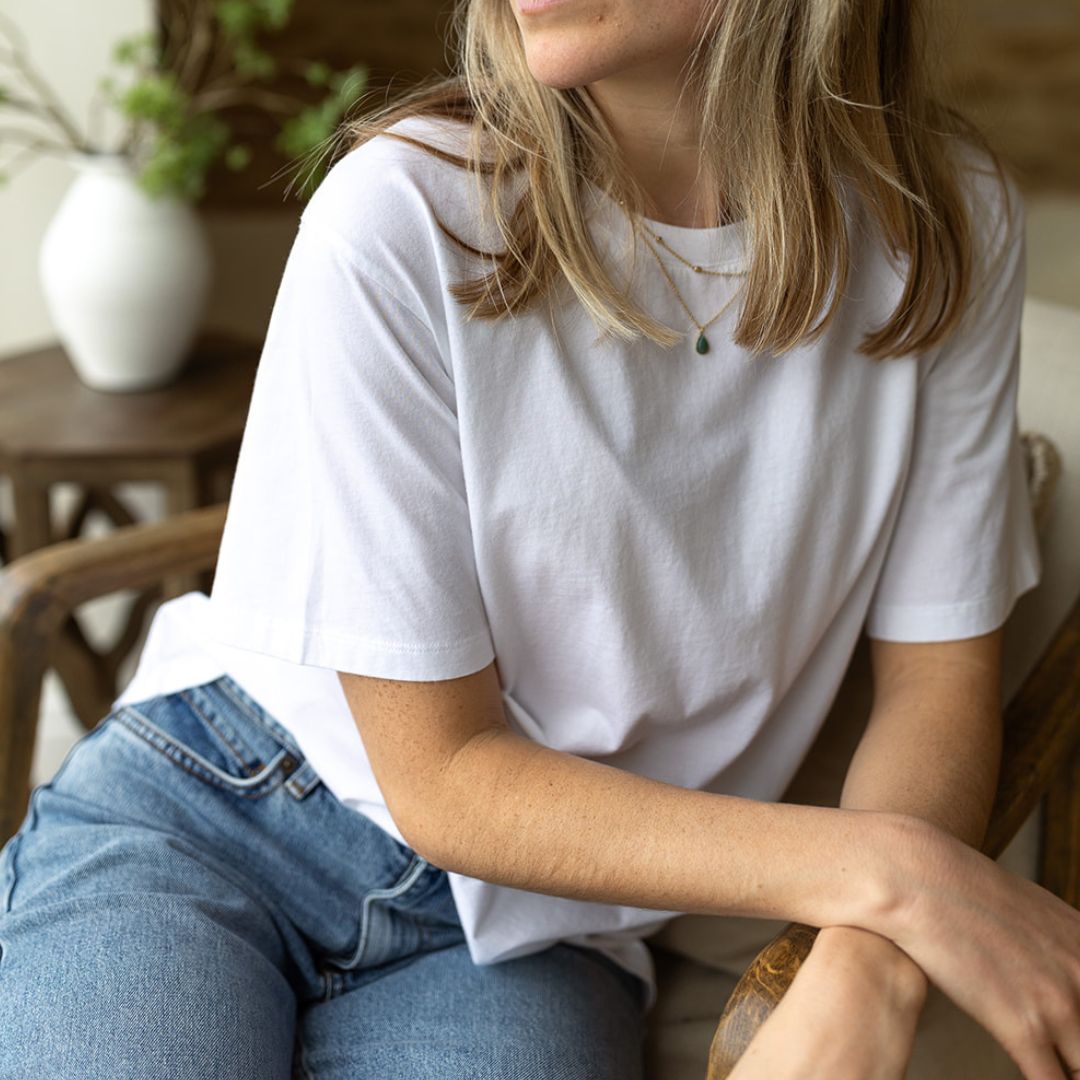
Why is it important to be ethical in business?
Having worked for a wide range of brands including supermarkets, I understand all too well the negative implications on factories and individuals when prices are over negotiated. The fashion industry also has a bad reputation when it comes to pollution, water use and carbon emissions and I strongly believe it is brands’ and consumers responsibility to change this in every way we can, which means working with forward thinking and like minded manufactures who do all they can to lower our impact.
What is the link to your page on ethics on your website?
What steps are you taking to ensure your brand operates as ethically as possible?
At Ivy, we are proud to champion a more ethical and sustainable approach to fashion. As an honest and conscious clothing brand, we work tirelessly to ensure that we minimise our impact on the environment and prove our ongoing commitment to sustainability. We endeavour to maintain a fully transparent supply chain and work only with Sedex approved, GOTS and GRS certified factories. We also ensure that our garments are 100% fit for purpose and wash well to ensure longevity and to minimise waste.
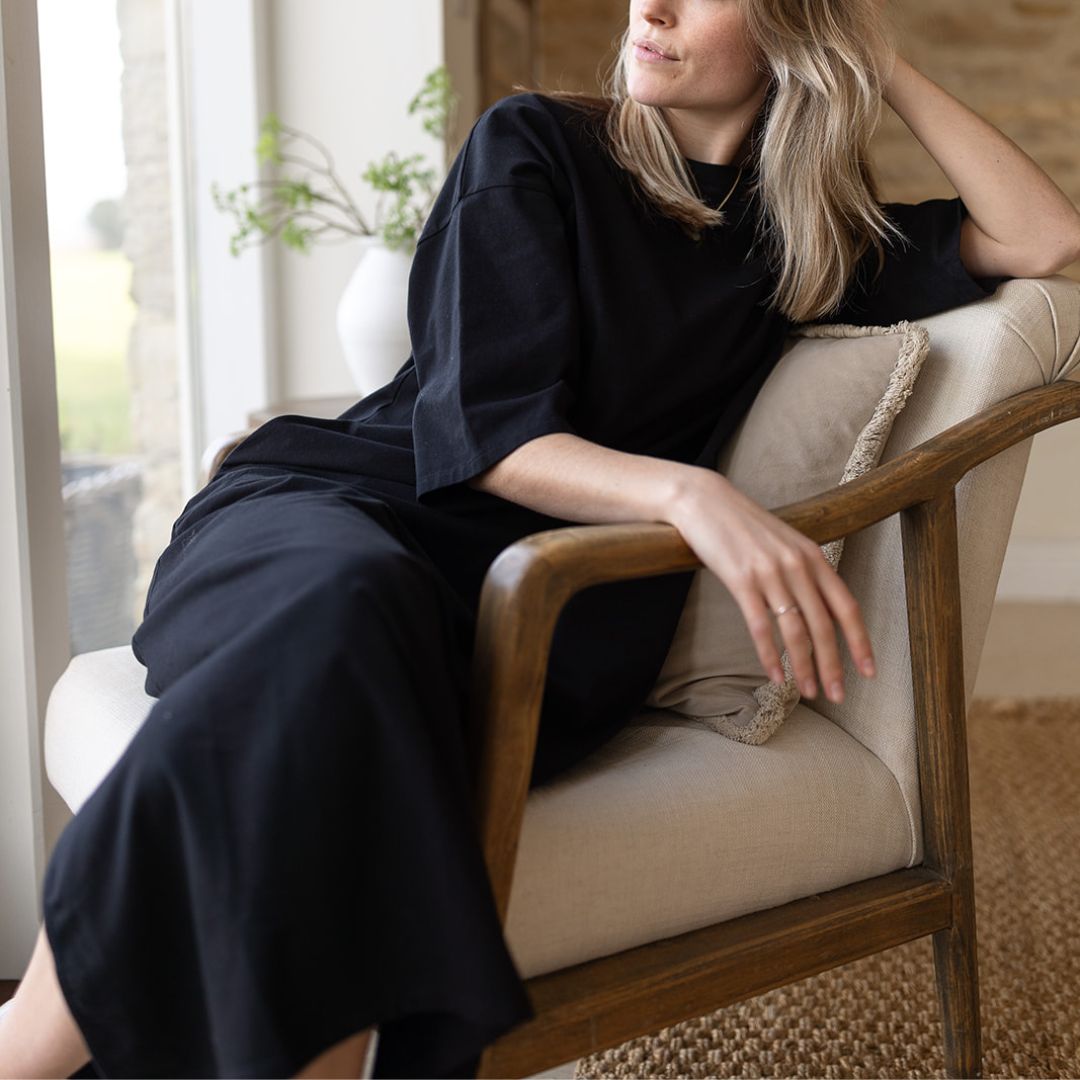
How important is sustainability for businesses? What are you doing in your business to reduce your environmental impact?
We believe in considered purchasing of timeless pieces (not trend led fads). Our commitment to slow fashion is not just ingrained in our values, but is an integral part of how we communicate with customers. On our socials, we share ways to wear with the intention of inspiring people to make informed choices and to wear their existing Ivy garments in new ways. We only sell well made, long lasting basics that are designed to be in a woman’s wardrobe for well more than one season.
What are you not doing in your business but want to improve on?
I would like to include more factory information on our website, for those that want it, including certifications and audits, as well as the origins on our organic cotton fibre.
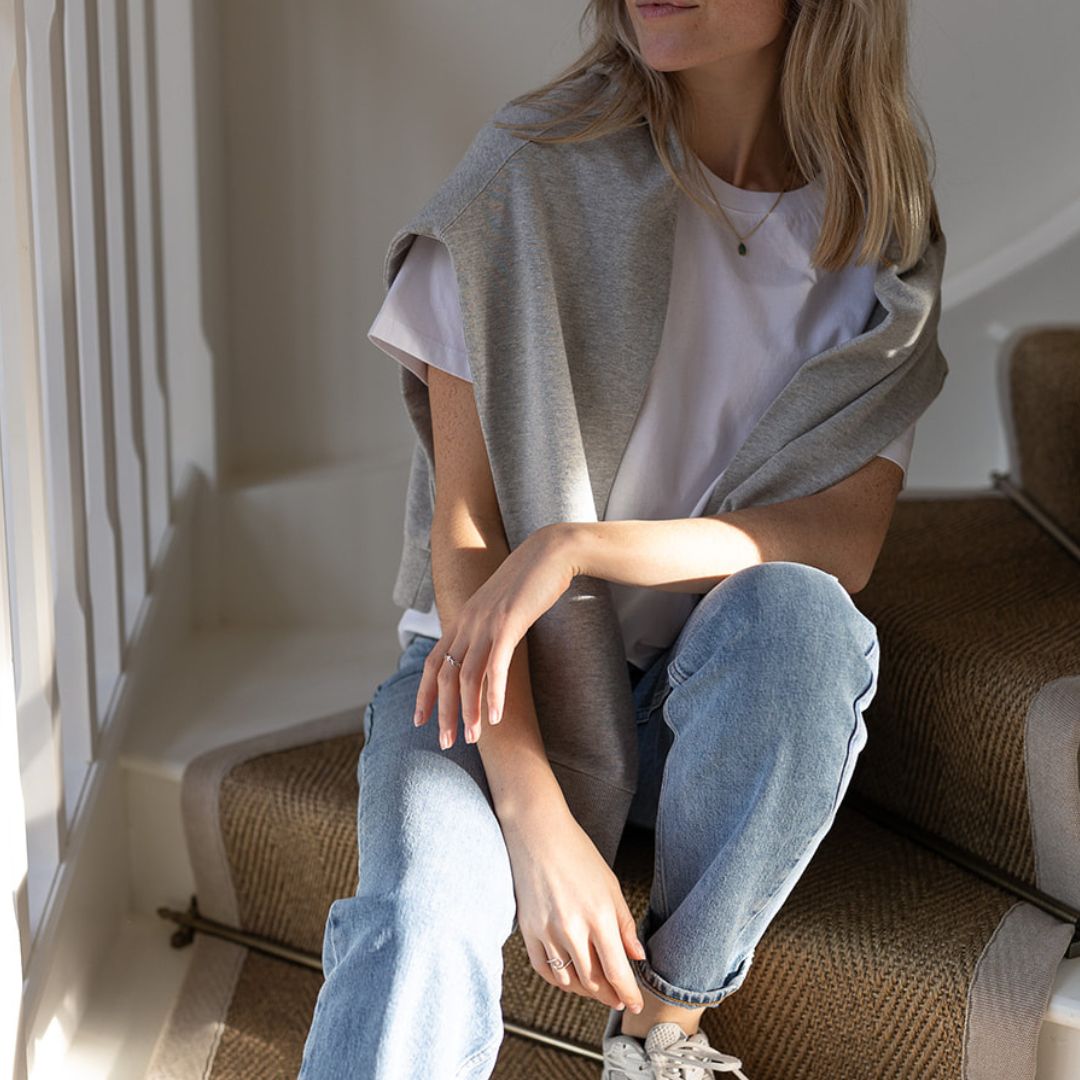
What is the link to your page on sustainability on your website?
What is your supplier and sourcing policy?
We currently only work with one manufacturer in Portugal to remain focussed. We are very much partners and share full transparency across the supply chain. They are Sedex approved and like us, our factory is constantly striving to reduce its impact on the environment and it only works with carefully selected third parties who share its core values. It is important to us that we course as close to home as possible to keep our emissions low and minimise our footprint.
In 10 years from now where would you like to see the fashion/beauty/travel world? From a business and a consumer perspective
in 2022 it was estimated that 15% of consumers were highly concerned about sustainability and consistently made purchasing decisions to lower their impact. This percentage is expected to grow to 50% in coming years, as more shoppers begin to value fair trade, sustainable practices and ethical manufacturing and it is brands’ responsibility to bring consumers these options.
Do you have any favourite ethical and sustainable quotes, or any key influencers that inspire you?
“Buy better, buy less” is our main ethos. It sums up perfectly everything we aspire for. Simply invest a little more money upfront in something that has been sourced responsibly and made well, to make sure your purchases last for you and don’t need to be replaced every season.
Why should the general public care about supporting ethical and environmentally responsible brands?
The bad reputation that the fashion industry has is slowly being counterbalanced by a growing consumer demand for more ethical clothing brands that prioritise social responsibility and are trying to do things differently. It is up to every single individual to make a long lasting difference to how we consume fashion and I would urge anyone learning about ethical brands to try them before always opting for a familiar mass producing retailer.
Check out their EBD listing:
